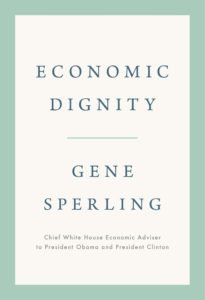 On October 29th, the Bruce R. Thompson Center for Business and Economics and Allegheny Law & Policy program welcomed Gene Sperling, Former Director, National Economic Council and Assistant to the President for Economic Policy under Presidents Clinton and Obama. He led a lively discussion of how his call for Economic Dignity has been highlighted by the COVID crisis, and how it should inform progressive policy going forward.
On October 29th, the Bruce R. Thompson Center for Business and Economics and Allegheny Law & Policy program welcomed Gene Sperling, Former Director, National Economic Council and Assistant to the President for Economic Policy under Presidents Clinton and Obama. He led a lively discussion of how his call for Economic Dignity has been highlighted by the COVID crisis, and how it should inform progressive policy going forward.
His remarks centered around the principles proposed in his book, Economic Dignity. Sperling’s book outlines a profound big-picture vision of why the promotion of dignity should be the singular end goal by which we chart America’s economic future.
Sperling focuses on three pillars, each “essential and interdependent” when considering the economic impact on the lives of everyday Americans:
- The ability to care for family without economic deprivation or desperation denying us the most meaningful moments and joys in our most important loving relationships;
- The capacity to pursue potential and a sense of purpose and meaning; and
- The ability to contribute and participate in the economy with respect, free from domination or humiliation.[i]
Sperling writes, “Amid all the metrics, means, policies, labels and debates over political strategies that bombard us daily, it is this vision of economic dignity that should be the North Star for economic policy that guides us every step of the way.” (Economic Dignity, pg. 297)
Gene Sperling is a Senior Fellow at the Center for American Progress. He was President Clinton’s National Economic Advisor and Director of the National Economic Council from 1997 to 2001 and Deputy National Economic Advisor from 1993 to 1997. Mr. Sperling recently served as a top economic advisor to the Kerry-Edwards presidential campaign. He is a columnist and commentator for Bloomberg Business News and a contributing editor for the DLC’s Blueprint Magazine, serves as director of the Center for Universal Education at the Council of Foreign Relations, and has been a contributing writer and consultant to the television show The West Wing. He has appeared on Meet the Press, Face the Nation, This Week, Good Morning America, Nightline, and CNN’s Late Edition, and is a frequent contributor to NPR. His articles have appeared in The Atlantic, Foreign Affairs, The New York Times, The Washington Post, Inc. magazine, Financial Times, Foreign Policy, and others. of Form
Follow Gene on Twitter: https://twitter.com/genebsperling
[i] Sperling, Gene (2020) Penguin Press, Economic Dignity, p 30
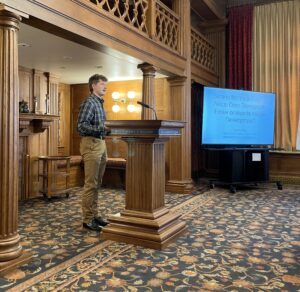
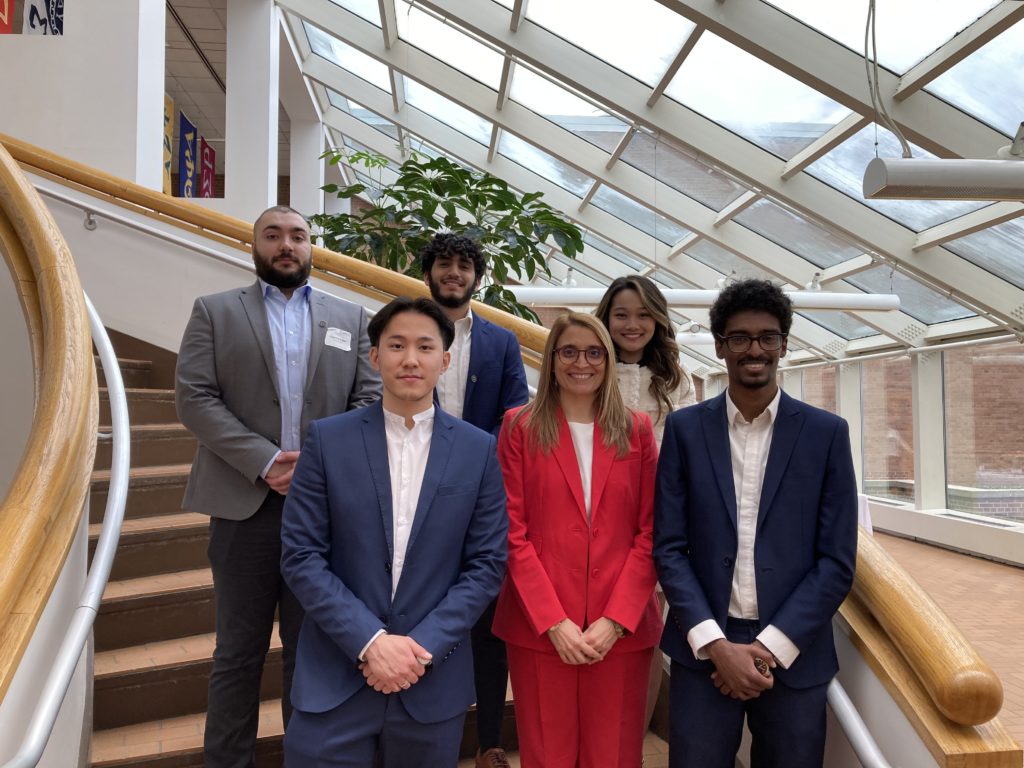
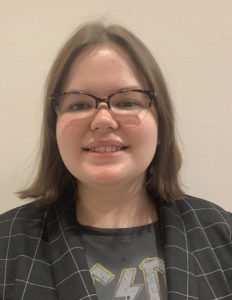 Women in Business and Economics Club Vice President, Sarah Schmidt ’21 prepared key research for the Department of Business & Economics through the URSCA program this summer, presenting her findings to the entire Allegheny College campus community. We asked Sarah…
Women in Business and Economics Club Vice President, Sarah Schmidt ’21 prepared key research for the Department of Business & Economics through the URSCA program this summer, presenting her findings to the entire Allegheny College campus community. We asked Sarah…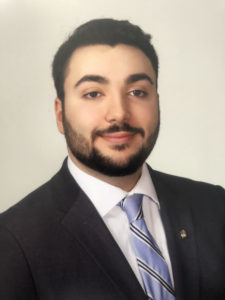 This summer, rising senior Ray Englert is working on a research project with Dr. Tim Bianco investigating the regional economy, while concurrently working with the Director of Student Life planning activities for the upcoming semester. We asked Ray…
This summer, rising senior Ray Englert is working on a research project with Dr. Tim Bianco investigating the regional economy, while concurrently working with the Director of Student Life planning activities for the upcoming semester. We asked Ray…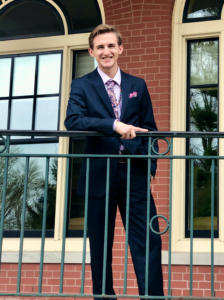 This summer, CBE Fellow and incoming Student Government President, Noah Tart ’22 is working on a research project with Dr. Kathryn Bender and Katie Nichols investigating industry compliance and food waste management. We asked Noah…
This summer, CBE Fellow and incoming Student Government President, Noah Tart ’22 is working on a research project with Dr. Kathryn Bender and Katie Nichols investigating industry compliance and food waste management. We asked Noah… On October 29th, the Bruce R. Thompson Center for Business and Economics and Allegheny Law & Policy program welcomed Gene Sperling, Former Director, National Economic Council and Assistant to the President for Economic Policy under Presidents Clinton and Obama. He led a lively discussion of how his call for Economic Dignity has been highlighted by the COVID crisis, and how it should inform progressive policy going forward.
On October 29th, the Bruce R. Thompson Center for Business and Economics and Allegheny Law & Policy program welcomed Gene Sperling, Former Director, National Economic Council and Assistant to the President for Economic Policy under Presidents Clinton and Obama. He led a lively discussion of how his call for Economic Dignity has been highlighted by the COVID crisis, and how it should inform progressive policy going forward.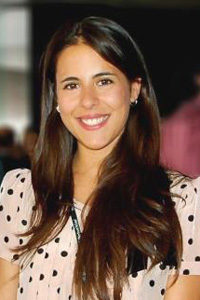 The Bruce R. Thompson Center for Business & Economics welcomed Dr. Rocio Medere, Assistant Professor of Economics, Southern Methodist University on November 4. Dr. Medere is the economist who asked the research question, “Is tourism good for locals?”
The Bruce R. Thompson Center for Business & Economics welcomed Dr. Rocio Medere, Assistant Professor of Economics, Southern Methodist University on November 4. Dr. Medere is the economist who asked the research question, “Is tourism good for locals?”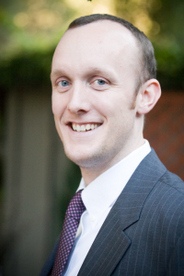 In the second lecture in this year’s theme, Seeking Justice in a Divided Nation, the Bruce R. Thompson Center for Business & Economics welcomed Dr. George Bulman, Assistant Professor of Economics, University of California, who presented his research entitled “Law Enforcement Leaders and The Racial Composition of Arrests.”
In the second lecture in this year’s theme, Seeking Justice in a Divided Nation, the Bruce R. Thompson Center for Business & Economics welcomed Dr. George Bulman, Assistant Professor of Economics, University of California, who presented his research entitled “Law Enforcement Leaders and The Racial Composition of Arrests.”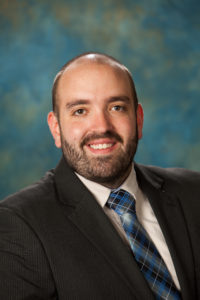 Timothy Bianco is an Assistant Professor of Economics at Allegheny College. He earned a Ph.D. in Economics at the University of Kentucky, specializing in macroeconomics. Bianco attended Bowling Green University, earning a Master of Arts in Economics (2008) and a Bachelor of Science in Business Administration, Economics and Finance (2006). His research focuses on macroeconomics, banking and corporate finance, and international trade and finance. He served as an Economic and Research Analyst at the Cleveland Federal Reserve Bank for four years, prior to joining the University of Kentucky (2013 – 2018). He has been published in the Journal of Banking and Finance, the Handbook on Systemic Risk, the Journal of Financial Management and Analysis, and the Federal Reserve’s Economic Commentary.
Timothy Bianco is an Assistant Professor of Economics at Allegheny College. He earned a Ph.D. in Economics at the University of Kentucky, specializing in macroeconomics. Bianco attended Bowling Green University, earning a Master of Arts in Economics (2008) and a Bachelor of Science in Business Administration, Economics and Finance (2006). His research focuses on macroeconomics, banking and corporate finance, and international trade and finance. He served as an Economic and Research Analyst at the Cleveland Federal Reserve Bank for four years, prior to joining the University of Kentucky (2013 – 2018). He has been published in the Journal of Banking and Finance, the Handbook on Systemic Risk, the Journal of Financial Management and Analysis, and the Federal Reserve’s Economic Commentary.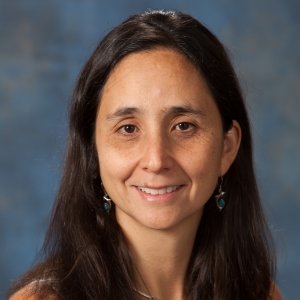 Ana María Herrera is a Professor of Economics at the University of Kentucky. She earned both her B.A. and M.A. in Economics at the Universidad de los Andes in Bogotá, Colombia and her Ph.D. in Economics at the University of California in San Diego. Herrera was a Repsol-YPF Fellow at Harvard’s Kennedy School in 2005-06 and conducts research in macroeconomics, energy economics and applied econometrics. Her work has been published in the Journal of Monetary Economics, the Journal of Financial Economics, the Journal of Applied Econometrics and the Energy Journal.
Ana María Herrera is a Professor of Economics at the University of Kentucky. She earned both her B.A. and M.A. in Economics at the Universidad de los Andes in Bogotá, Colombia and her Ph.D. in Economics at the University of California in San Diego. Herrera was a Repsol-YPF Fellow at Harvard’s Kennedy School in 2005-06 and conducts research in macroeconomics, energy economics and applied econometrics. Her work has been published in the Journal of Monetary Economics, the Journal of Financial Economics, the Journal of Applied Econometrics and the Energy Journal.